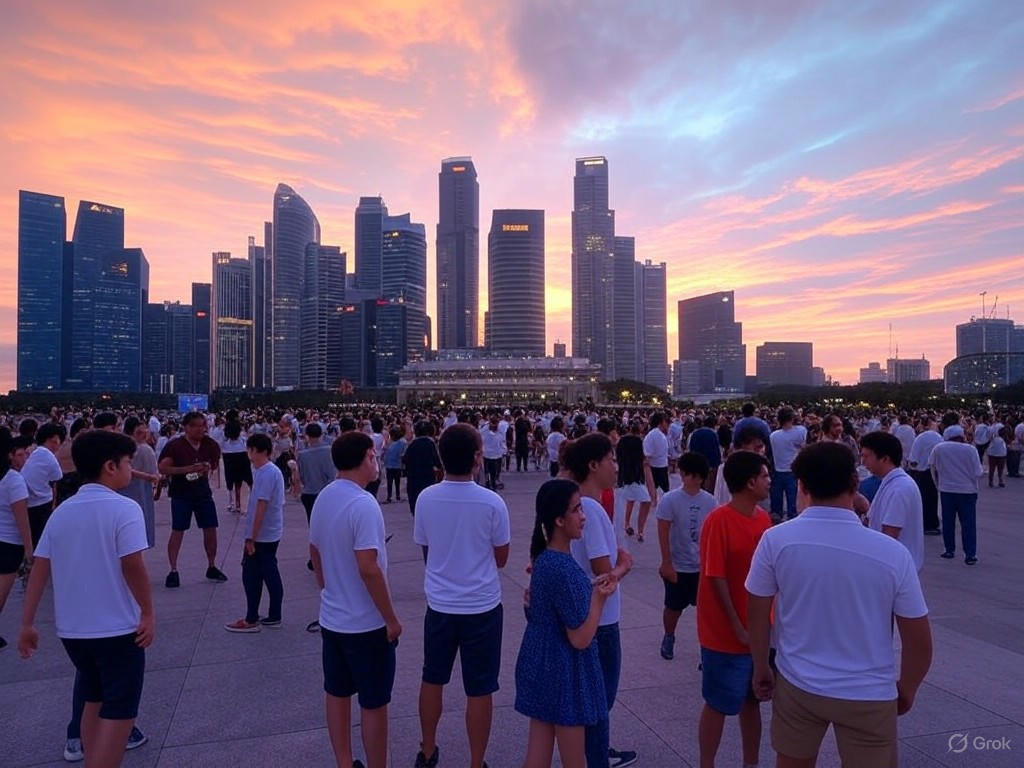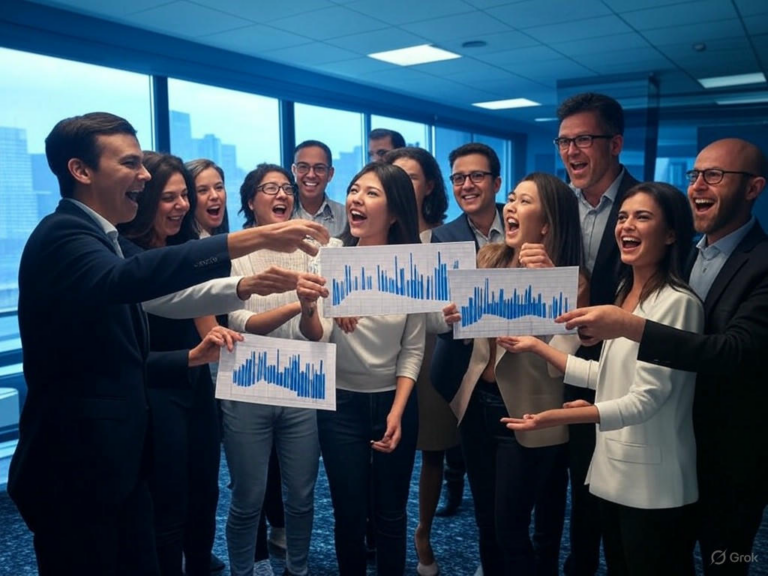
Singapore Election Victory: PAP Secures Sweeping Win for Stability
The Significance of Singapore Election 2025: A Decisive PAP Triumph
Singapore election 2025 unfolded as a clear endorsement of stability, with the People’s Action Party (PAP) claiming 87 out of 97 parliamentary seats. This outcome, a marked improvement from 2020, hands new Prime Minister Lawrence Wong a strong platform to steer the nation through global economic headwinds. What makes this vote so compelling is how it reflects Singaporeans’ focus on proven leadership during uncertain times.
Voters turned out in force, casting 2,386,452 valid votes, where PAP captured 65.57%—up from 61.24% in the previous election. If you’ve ever wondered how elections shape a country’s future, this one highlights a preference for continuity amid rising global tensions. It’s a reminder that in turbulent eras, people often rally behind what’s familiar and effective.
While economic uncertainty loomed large, the results underscore Singapore’s resilience as a global hub. The PAP’s win isn’t just about numbers; it signals trust in policies that have driven the city-state’s growth for decades.
A Robust Mandate for Prime Minister Wong in Singapore Election 2025
This marked Prime Minister Lawrence Wong’s first major test since taking the helm, and Singapore election 2025 delivered a resounding vote of confidence. Addressing supporters at a predawn press conference, Wong called it a “clear and strong mandate,” emphasizing how it equips Singapore to navigate international challenges. Have you considered how a single election can redefine a leader’s path? For Wong, it’s a pivotal moment that cements his role in fostering economic security.
With PAP’s history of governance stretching back to 1965, this victory builds on that legacy, boosting their vote share significantly. Wong’s emphasis on stability resonated, especially as global shifts, like supply chain disruptions, hit home. By prioritizing experienced hands, voters are essentially betting on Wong’s vision for adaptation and growth—what strategies might he deploy next to keep Singapore ahead?
One key factor was the party’s strong performance in key areas, like Tanjong Pagar GRC and several SMCs, where margins widened. This isn’t just politics; it’s about real-world implications for everyday life, from jobs to international trade.
Key Constituencies and Their Role in Singapore Election 2025 Dynamics
Diving deeper into Singapore election 2025, certain constituencies played a starring role in PAP’s success. For instance, wins in Queenstown and Radin Mas SMCs came with larger leads than before, reflecting localized trust in the party’s approach. Imagine a neighborhood voting for familiarity amid global chaos— that’s the story here.
Additionally, one walkover constituency added uncontested seats, streamlining PAP’s path to dominance. This element adds layers to the election’s narrative, showing how structural factors can influence outcomes.
Global and Regional Echoes of Singapore Election 2025
Beyond borders, Singapore election 2025 carries weight in a world gripped by superpower rivalries, like the U.S.-China tensions often dubbed a “Digital Cold War.” As Southeast Asia’s financial powerhouse, Singapore’s stability under PAP reassures investors and allies. How does one small nation’s choice impact global markets? Quite profoundly, as this election reinforces policy continuity amid geopolitical flux.
The results signal that Singapore won’t waver in its strategic positioning, potentially influencing trade routes and tech alliances. If you’re tracking international affairs, this is a case study in how domestic votes echo worldwide.
Economic Challenges Shaping Post-Election Priorities
With Singapore election 2025 in the rearview, Prime Minister Wong’s agenda turns to economic resilience. Issues like supply chain woes and tech transitions demand innovative strategies, building on PAP’s track record. Ever thought about how a government adapts to global shifts? Wong’s team plans to double down on sectors like finance and logistics to keep Singapore competitive.
Tips for staying ahead: Focus on upskilling workers and diversifying exports, as Wong has hinted. This approach could offer lessons for other nations facing similar hurdles, making it a blueprint for economic agility.
Navigating Geopolitical Tensions Post-Singapore Election 2025
In the wake of Singapore election 2025, balancing U.S.-China dynamics will be crucial. As a neutral player, Singapore must maintain autonomy while protecting its interests. What if more countries adopted this balanced stance? It might foster greater global cooperation, drawing from Singapore’s model.
Opposition’s Role and Evolving Democracy
While PAP dominated Singapore election 2025, opposition parties still carve out space in the political scene. Their 2020 gains showed a push for diversity, but this time, voters leaned toward stability over change. Does that mean democracy is stalling? Not necessarily—it’s more about priorities shifting with the times.
For example, parties like the Workers’ Party offered fresh ideas, yet PAP’s experience won out. This balance keeps things dynamic, encouraging the ruling party to innovate and listen.
Drivers Behind PAP’s Success in Singapore Election 2025
What fueled PAP’s stellar performance? Economic jitters topped the list, with voters favoring the party’s decades of steady management. Plus, Wong’s smooth transition from his predecessor resonated, blending continuity with new energy. In a hypothetical scenario, if global markets crashed tomorrow, who’d you trust to steer the ship? For many Singaporeans, it’s PAP.
Clever campaigning also played a part, highlighting stability in uncertain times. By weaving in relatable stories, like family budgets affected by inflation, they connected on a personal level.
Governance Challenges Ahead After Singapore Election 2025
Now, with a fresh mandate, Wong’s government tackles domestic issues like housing costs and inequality. How can they ensure inclusive growth? By rolling out targeted policies, such as affordable housing initiatives, while addressing social gaps. This isn’t just about economics; it’s about building a fairer society.
Actionable advice: Stay informed on policy updates and engage in community discussions—your voice matters in shaping the future.
Singapore’s Long-Standing Political Legacy
Singapore election 2025 reinforces a tradition of effective governance that’s defined the nation since independence. PAP’s role in transforming Singapore into a global economic leader is undeniable, blending pragmatism with forward-thinking plans. It’s like watching a well-oiled machine adapt over time—what keeps it running? A commitment to results-driven leadership.
Wrapping Up: The Path Forward from Singapore Election 2025
In summary, Singapore election 2025 stands as a vote for steadiness in shaky times, empowering Prime Minister Wong to lead with confidence. As challenges mount, from economic shifts to geopolitical plays, the government’s focus on resilience will be key. What are your thoughts on this outcome—does it inspire hope or raise questions for you?
If you’re passionate about global politics, dive deeper into related topics on our site. Share your insights in the comments below, or explore more on Singapore’s evolving story. Let’s keep the conversation going!
References
- Economic Times. “PAP secures landslide victory in Singapore general election; PM Wong gets strong mandate.” Link
- The Straits Times. “Strong showing for PAP as it wins Tanjong Pagar GRC, Queenstown and Radin Mas SMCs.” Link
- Other sources consulted for context, including YouTube analysis and various reports, were used to enhance understanding but not directly cited in-text.
Singapore election 2025, PAP victory, Lawrence Wong, Singapore politics, economic stability, general election results, Southeast Asia elections, global economic uncertainty, political mandate, Singapore governance






